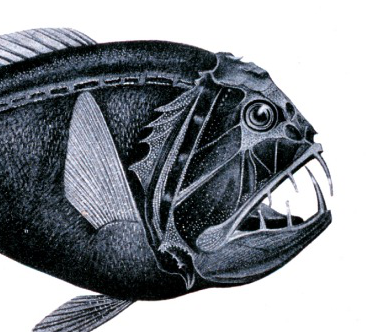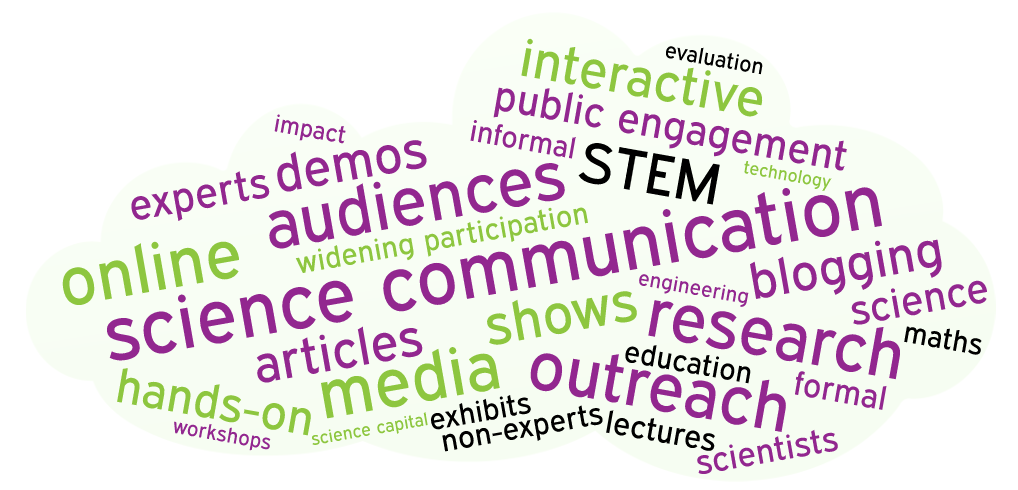
This is a guest post by Danielle Perry. Danielle obtained her Bachelor’s degree in Marine Biology and Environmental Science at the University of New Haven in 2015. She is currently a second year PhD student in the Biological and Environmental Science program at the University of Rhode Island (URI). As part of her PhD research, she studies the effects of algae accumulation on salt marsh environments and monitors salt marsh restoration projects with the non-profit organization Save The Bay. She is involved with the Science and Math Investigative Learning Experiences (SMILE) program at URI, a program dedicated to encouraging minority students toward a STEM career.
As an African American woman studying marine science, I am especially aware of the need for further diversity within this wonderful field. When expressing my interest in marine biology to other African Americans, I have been told, “African Americans don’t do marine biology.” I’m sure the spread of this message has discouraged other African Americans from pursing the field. But I challenge that statement with one of my own: “Why not?”
I am currently a Ph.D. student in the Biological and Environmental Science program at the University of Rhode Island (URI), but have noticed the need for diversity since my undergraduate career. I was the only woman of color from my class to graduate in the marine biology major. In 2012, about 15% of bachelor’s degrees in biological sciences were earned by underrepresented groups, but only 1.95% were degrees in Earth, Atmospheric, and Ocean Sciences (NSF 2015; Johnson et al. 2016).
My experience as an African American marine scientist

After Bring-Your-Daughter-To-Work-Day when I was ten years old, I asked my father what he thought I should be when I grow up. He replied, “Why not a marine biologist? You like water and animals.” This suggestion sparked my interest in the field from a young age. I have come a long way since that conversation with my dad. Although I do not study marine animals as he first suggested, marine biology turned out to be where my passion lied. My Ph.D. research involves the study of seaweed accumulation on salt marshes and how this affects the survival of salt marsh plants. I am proud of my accomplishments thus far, but the path that led me here was not always a smooth one.
The people in someone’s life greatly influence the paths they choose to pursue. In high school, I experienced prejudices from teachers and other students who insinuated that I couldn’t be smart enough to pursue a science career and tried to discourage me. However, I have also had teachers who have believed in me and my capabilities. Those were the people who made all the difference. I am sure many minorities have decided against pursuing marine science or another STEM field because the negative people in their lives outweighed the positive ones. As a community, we need more positive influences and better resources in schools in order to encourage young minority students who choose to pursue marine science.
In this post, I have interviewed two other minority students at URI about their experiences as marine scientists. While I know this topic is important to me, I wanted to query other minority students’ views on diversity within marine science and share their experiences.
Sandra Schleier

“[Marine science] is an awesome field with many opportunities, which you should pursue if it’s what you are interested in. You can achieve it as long as you believe in yourselves.”

Sandra Schleier, a Puerto Rico native, is a Master’s student in the Biological and Environmental Science program at URI studying coral reef restoration. Sandra decided to obtain her Master’s at URI due to guidance from another Puerto Rican native who attended the university. However, she has not always received the encouragement she hoped for as a minority pursuing a marine science degree. During an internship in the summer of 2009, she felt that some lab members viewed her as a lesser scientist because she was from Puerto Rico. “That experience only fueled me to become a better mentor and scientist. In general, we need more people to accept minorities as scientists,” Sandra comments.
Sandra introduced another important point as well: the lack of resources available for students in Puerto Rico. “Students in Puerto Rico are not well informed about the opportunities in the field [marine science]. They don’t know how to access the information…” This could be improved by better counseling and resource accessibility within grade schools.
Sandra would like to send this message to minority students: “[Marine science] is an awesome field with many opportunities, which you should pursue if it’s what you are interested in. You can achieve it as long as you believe in yourselves.”
Katherine Hannibal

“[Marine science] is not a far-fetched career. Don’t let people railroad you into doing something that they think you should be doing. Make the decision for yourself.”

Katie Hannibal is a California native and undergraduate African American marine biology student at URI. While growing up, Katie and her friends equated being a marine scientist with being an astronaut – a career that sounds cool, but may not be realistic or feasible. “No one really told me about it [marine biology]. I didn’t think it could be a real career option,” says Katie. Katie had a marine science teacher who told her that a career in marine science was more than possible and encouraged her toward the field, but Katie has experienced adversity as she has continued down this path. Teachers have questioned her genuine interest in the field and tried to sway her toward another career choice.
Katie believes that your environment has the most influential role. “Unless you grow up in a community that tells you that you can do anything, then it may be difficult to believe in yourself… If it was not for the eco-friendly environment I grew up with and my supportive family, I don’t know if marine science would’ve been the path I chose.” She wants other minority students to know that “[Marine science] is not a far-fetched career. Don’t let people railroad you into doing something that they think you should be doing. Make the decision for yourself.”
Spreading Diversity Is A Group Effort: How Universities and Organizations Work for the Cause
Students of underrepresented groups may be discouraged from pursuing marine science because they do not see people who look like them in the field; minorities within the field need to make themselves available and present for young minorities.
There are programs at URI that encourage this type of relationship. The Science and Math Investigative Learning Experiences (SMILE) at URI is an enrichment program for minority students (grades 4-12) that encourages them to pursue STEM content, maintain good grades, and attend college. There are opportunities for URI students to become mentors for students in the program, which is a great opportunity for minority college students to mentor young students of underrepresented groups. The most effective way to diversify the marine science field is to show young minority students that people of similar demographics are active and successful in the field. Maybe then the idea of being a marine scientist will be considered less of a fairy tale and more of a reality.
Universities across the nation have programs similar to SMILE that encourage diversity within STEM. The University of California Santa Cruz (UCSC) has a STEM Diversity Office that runs five programs responsible for helping underrepresented groups purse STEM. Through these programs, minority undergraduates are able to participate in research projects mentored by STEM faculty and present their research at the UCSC symposium and travel to conferences. They are also able to participate in workshops and study groups as well as obtain graduate school application assistance and can be awarded scholarships. The Massachusetts Institute of Technology (MIT) organizes K-12 outreach programs with the mission of enhancing the understanding of STEM concepts to young students. One of their goals is to make STEM education accessible to underrepresented groups. Other colleges and organization such as George Washington University, NASA Stennis Space Center, and the National Society of Black Engineers coordinate programs to promote STEM in underrepresented groups. Maine Sea Grant, particularly, organizes marine-related education programs for K-16 students, exposing them to various field experiences. K-12 STEM education programs should be a priority for all universities, particularly programs for minority groups. Exposing students from underrepresented groups to STEM opportunities from a young age will improve STEM diversity in the workforce.
Further Diversity to Further Scientific Perspective
Underrepresented demographics may not be exposed to resources or role models that would encourage them to pursue marine science. This is a novel and unique field, and students may not be properly counseled on the opportunities that it could lead to. The main reason young minority students may be discouraged from pursuing marine science is simply because they do not see people like them in that field. Students look to be inspired and have someone to emulate. Minority marine scientists need to be active in the field and reach out to young students of underrepresented groups to show them they can be marine scientists, too. All marine scientists, no matter their background, should work together to encourage diversity because diverse perspectives lead to better science.
References Cited
Johnson, A., M.J. Huggans, D. Siegfried, and L. Braxton. 2016. Strategies for increasing diversity in the ocean science workforce through mentoring. Oceanography 29(1):46–54, http://dx.doi.org/10.5670/oceanog.2016.1.
NSF (National Science Foundation National Center for Science and Engineering Statistics). 2015. Women, Minorities, and Persons with Disabilities in Science and Engineering: 2015. Special Report NSF 15-311, National Science Foundation, Arlington, VA, http://www.nsf.gov/statistics/wmpd.
Have any more examples of programs aimed at getting students from underrepresented groups involved with marine science or other STEM fields? Let us know in the comments!
I am the founder of oceanbites, and a postdoctoral fellow in the Higgins Lab at Colorado School of Mines, where I study poly- and perfluorinated chemicals. I got my Ph.D. in the Lohmann Lab at the University of Rhode Island Graduate School of Oceanography, where my research focused on how toxic chemicals like flame retardants end up in our lakes and oceans. Before graduate school, I earned a B.Sc. in chemistry from MIT and spent two years in environmental consulting. When I’m not doing chemistry in the lab, I’m doing chemistry at home (brewing beer).


hi
very interesting topic ” toxic chemicals like flame retardants end up in our lakes and oceans.” it’s very useful for next generation.
doe anyone know if this article peer reviewed thank you